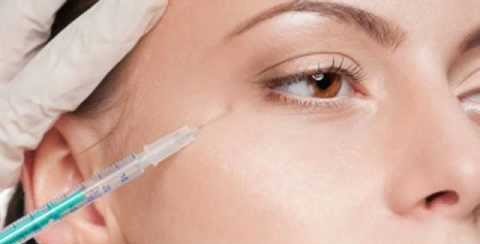GPs will now have a key role in assessing mental health under new rules for cosmetic surgery
GPs will now have a key role in assessing mental health under the new rules around cosmetic surgery set to take effect on October 1.
In a crackdown on the growing $1 billion per year industry, the Medical Board of Australia has issued regulatory guidelines, which include mandatory cooling-off periods, advertising restrictions and mental-health assessments.
Under the new rules, a cosmetic clinician who suspects a patient has an underlying psychological condition must send them to a GP, psychologist or psychiatrist for an evaluation.
And psychological evaluations are mandatory for all under-18s wanting a major cosmetic procedure, such as breast augmentation, liposuction or rhinoplasty, regardless of signs of an underlying mental health condition.
Minor procedures, which include those that don’t cut the skin, such as injectables, laser skin treatments and dermabrasion, come with a seven-day cooling off period for minors and psychological evaluation “if indicated”, and no restrictions for adults.
But given the high rates of mental-health problems in the community, the guidelines have created some confusion around which specific mental-health concerns should preclude a patient from surgery.
RACGP spokeswoman, Dr Magdalena Simonis, said there was no psychological assessment tool that gave a clear-cut off for “suitable” or “unsuitable” patients.
As well as taking a thorough medical history, GPs should thoroughly explore why the patient wanted the treatment, and make sure they understood the procedure and had realistic expectations for the outcome, Dr Simonis told TMR.
“The relationship between the patient’s decision to have surgery and their history of previous mental health issues needs to be explored,” she said.
Mental-health disorders that were unrelated to the procedure and well-controlled should not be a deterrent to cosmetic procedures.
However, certain conditions such as body dysmorphic disorder, schizoaffective disorders, eating disorders, self-harming behaviour, suicidality and other severe forms of depression and anxiety needed to be carefully excluded, said Dr Simonis, who was heavily involving in reviewing the guidelines.
For GPs, it was important they were aware of their own limitations and contacted their medico-legal adviser when in doubt about procedures, she said.
During the consult, GPs should also perform baseline blood pressure, heart rate and BMI, as well as taking note of physical findings such as scars, skin pigmentation and keloid formation, said Dr Simonis, also a researcher at the department of general practice at the University of Melbourne.
Another key inclusion in the new guidelines is a mandatory face-to-face or video consultation before the provision of schedule 4 drugs such as botox, where previously doctors were able to write a prescription after an email or phone consultation.
The new rules also confirm the need for adequate emergency facilities when using sedation, analgesia and anaesthesia, and that all post-operative care is the total responsibility of the treating medical practitioner.
The Australian College of Plastic Surgeons has welcomed the changes, noting they echo their own code of practice.
However, the guidelines apply only to medical practitioners, and not to other healthcare practitioners or beauty therapists, leaving a gap in the regulation of the industry.
The guidelines are also vague on minimum training requirements to perform cosmetic procedures, stipulating only that a medical practitioner must have “appropriate training, expertise, and experience”.


